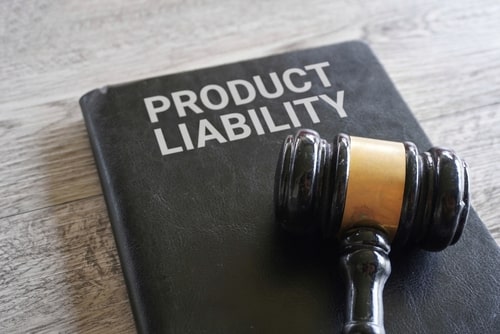When is a Company at Fault for Product Liability
 Companies that manufacture and sell products have a responsibility to make sure those products are safe when used as intended. However, accidents and injuries still happen. When they do, consumers wonder if the company is at fault and should be held liable. There are several ways a company can be considered negligent or directly responsible for harm caused by its products. A Florida personal injury lawyer can help you determine if your injury has potential for a case.
Companies that manufacture and sell products have a responsibility to make sure those products are safe when used as intended. However, accidents and injuries still happen. When they do, consumers wonder if the company is at fault and should be held liable. There are several ways a company can be considered negligent or directly responsible for harm caused by its products. A Florida personal injury lawyer can help you determine if your injury has potential for a case.
Design Defects
One of the most common reasons a company is seen as liable is if the product has a design defect. This means that the design of the product makes it unreasonably dangerous when used properly. Some examples would be:
- A motorcycle designed without adequate crash protection for the rider
- A lawnmower with an exposed blade near the handlebars
- A bottle of cleaning fluid with warnings only in small print on the back
In cases like these, the harm occurs because of decisions the company made in designing the product. Even if the consumer uses reasonable care in using the product, the flawed design can cause injuries and put the company at fault.
Manufacturing Defects
Even well-designed products can have flaws occur during manufacturing that make them unsafe. When an error occurs in the production process, every item in the product line could be defective. Some examples of manufacturing defects include things like:
- A coffee maker wired incorrectly so it delivers an electric shock
- A bicycle with weak metal in the frame so it breaks easily
- Glass food jars contaminated with pieces of glass during bottling
When manufacturing issues escape quality control and cause harm, the company fails in its duty to safely construct products up to design specifications. The flaws expose consumers to serious risks, so the company is considered negligent.
Failure to Warn of Risks
Beyond design and production issues, a company can also be deemed liable if it fails to adequately warn consumers of the risks involved in using its products. Even well-made products may pose hazards if misused or used for long periods. Companies have a responsibility to provide clear warnings and usage instructions with goods. For example, a company could be liable if they:
- Sell powerful cleaning products without poison warnings
- Do not disclose side effects of medications or supplements
- Provide overly complex or vague instructions for vehicle repairs
By not informing consumers of the real risks, companies leave customers vulnerable to harm. That violation of the duty to warn makes the company legally liable.
Intentional Negligence
In the most severe cases, a company may even know about a product's danger or receive consumer complaints but do nothing. If there is evidence a company intentionally ignored risks and put profits over safety, it faces substantial liability. Such reckless negligence demonstrates a callousness for consumer well-being.
When Companies Try to Avoid Responsibility
Because the stakes are high, companies typically fight product liability allegations vigorously to avoid costly settlements or verdicts. However, if the claim falls into one of the categories above, the battle is usually uphill for manufacturers and vendors seeking to avoid responsibility. With strong legal representation, you may pursue necessary potential compensation despite well-financed opposition.
Contact a Broward County, FL Personal Injury Attorney
If you were injured by a product or it was faulty, you have a right to seek compensation. While there is no guarantee, it can be worthwhile to move forward with a claim. A Fort Lauderdale, FL personal injury lawyer can help you with the steps. Call The Law Offices of John D. Ameen, P.A. at 800-555-4011 for a free consultation.







